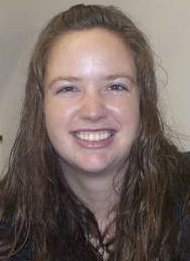Recently more and more NFL players are following Colin Kaepernick’s example of kneeling during the American national anthem. This peaceful protest was done to bring attention to the high number of unarmed people of colour being killed by police. Since Kaepernick took his stand by taking a knee, conversation has sparked.
The other day a friend shared something on Facebook. It was written by someone who claimed to be a marine (I don’t know if they were or were not for sure, on the internet you can be anything), but the gist of the message was that he fought under the flag and he knew people who gave their lives under the flag, thus it should be respected.
However, sport has forever been at the front of creating conversation on political and social issues: 1906 Olympics – Irish long jumper Peter O’Connor scaled the flagpole where the British flag was flying and waved the Irish flag himself, 1968 at the Olympics John Carlos and Tommie Smith raised their fists in the black power salute, and in 1967 Muhammad Ali refused to enlist in the Vietnam War.
Athletes have a large following. They’re celebrities in our world and for them to use their stage to create meaningful dialogue based on their world, then by all means. One of the freedoms in North America is to have basic human rights and for many people of colour these rights are inhibited, so refusing to stand during the national anthem is simply a way to create conversation surrounding the inequality allowed under that flag.
I asked this individual about their thoughts and in the end they told me that as a white person they have faced racism. Yes, that is possible, I don’t disagree. However, it is not the same systemic racism felt by people of colour and I don’t think white people can actually understand that difference.
A different friend reminded me of Jane Elliott’s Blue Eyes/Brown Eyes exercise. Following the assassination of Martin Luther King, Jr. Elliot wanted her grade three class to understand why he was killed. In her classroom she split up kids due to eye colour… blue eyes were treated as inferior, while brown eyes were treated as superior. She has held this workshop throughout the world over the years to help white people understand what kind of racism people of colour feel every day.
On Youtube in these exercises she places those with the “wrong coloured eyes” in a situation that minorities experience every day, giving white people a small glimpse of what racism looks like. ()
She brings up race relations in a video from a 1992 Oprah Winfrey Show and points out that even when someone says, “I don’t see colour,” they’re acting in a prejudiced way. She brings up an African American man next to her asking if they see differences. The first thing people say is height, gender, age, and then - after some prompting - the crowd finally says colour.
She asks the young man if his colour is important to him and he says yes, many in the crowd nod in agreement. “Colour is important to people of colour,” she states and she continues by saying that pretending colour doesn’t exist it is like saying there is something wrong with colour and that she’s going to look past it.
So, I don’t feel as though I can judge someone going through something that I can’t understand because I can’t comprehend what they have been through to reach that point.




